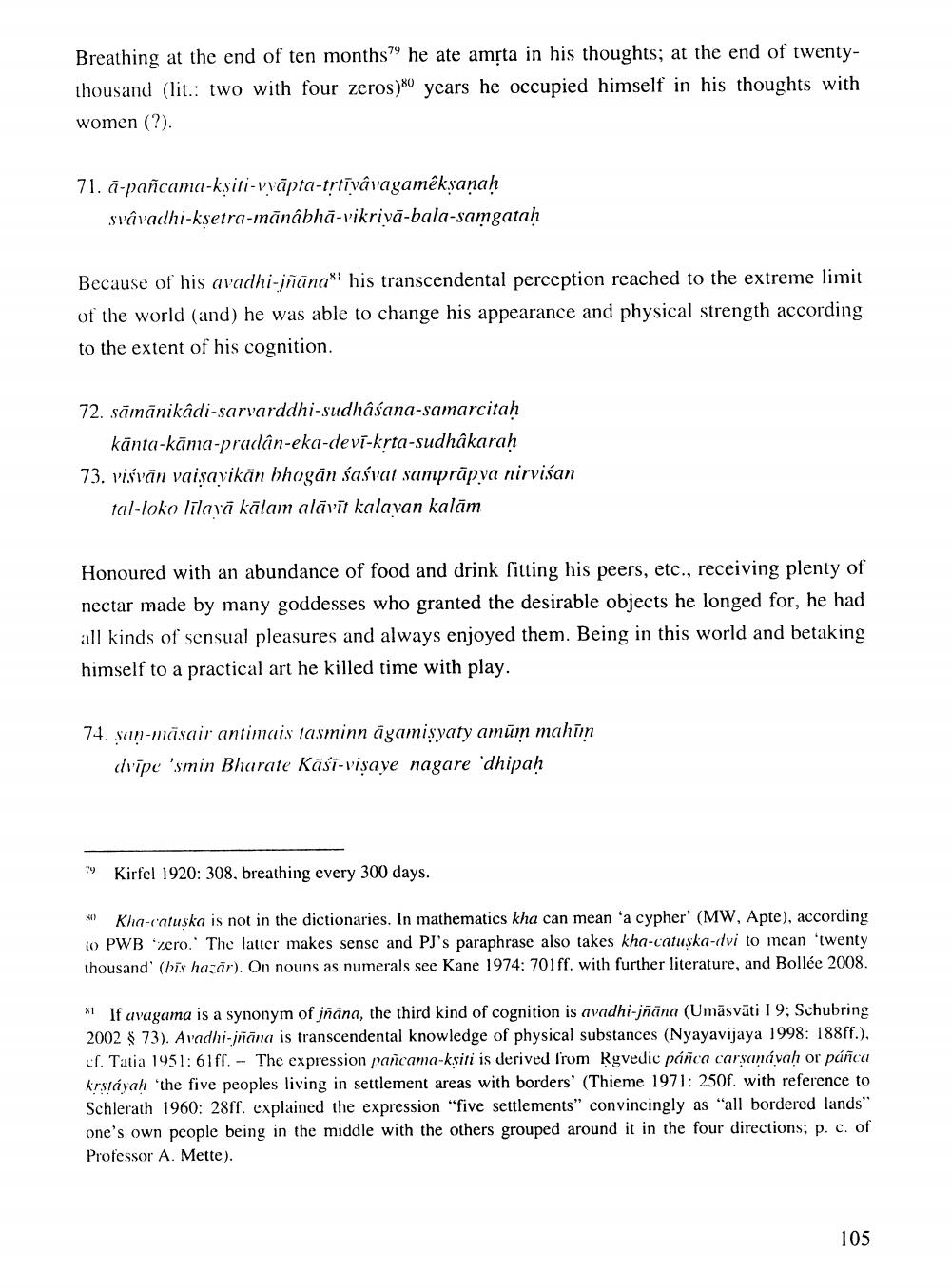________________
Breathing at the end of ten months" he ate amṛta in his thoughts; at the end of twentythousand (lit.: two with four zeros) years he occupied himself in his thoughts with women (?).
71. a-pañcama-kṣiti-vyāpta-tṛtivavagamêkṣaṇaḥ
svavadhi-kṣetra-manabhä-vikriya-bala-samgataḥ
Because of his avadhi-jñana" his transcendental perception reached to the extreme limit. of the world (and) he was able to change his appearance and physical strength according to the extent of his cognition.
72. sāmānikâdi-sarvarddhi-sudhâśana-samarcitaḥ
kānta-kama-pradan-eka-devi-kṛta-sudhakaraḥ
73. visvän vaiṣayikan bhogan saśvat sampräpya nirvisan tal-loko lilaya kalam alāvīt kalayan kaläm
Honoured with an abundance of food and drink fitting his peers, etc., receiving plenty of nectar made by many goddesses who granted the desirable objects he longed for, he had all kinds of sensual pleasures and always enjoyed them. Being in this world and betaking himself to a practical art he killed time with play.
74. san-mäsair antimais tasminn agamisyaty amum mahim
dvipe 'smin Bharate Kasi-viṣaye nagare 'dhipaḥ
Kirfel 1920: 308, breathing every 300 days.
80
Kha-catuska is not in the dictionaries. In mathematics kha can mean 'a cypher' (MW, Apte), according to PWB zero. The latter makes sense and PJ's paraphrase also takes kha-catuska-dvi to mean 'twenty thousand' (bis hazar). On nouns as numerals see Kane 1974: 701 ff. with further literature, and Bollée 2008.
79
* If avagama is a synonym of jñana, the third kind of cognition is avadhi-jñāna (Umāsvāti I 9; Schubring 2002 $73). Avadhi-jidna is transcendental knowledge of physical substances (Nyayavijaya 1998: 188ff.). cf. Tatia 1951: 61ff. The expression pañcama-kṣiti is derived from Rgvedic páñca carṣaṇávaḥ or páñca krstayah 'the five peoples living in settlement areas with borders' (Thieme 1971: 250f. with reference to Schlerath 1960: 28ff. explained the expression "five settlements" convincingly as "all bordered lands" one's own people being in the middle with the others grouped around it in the four directions; p. c. of Professor A. Mette).
105




